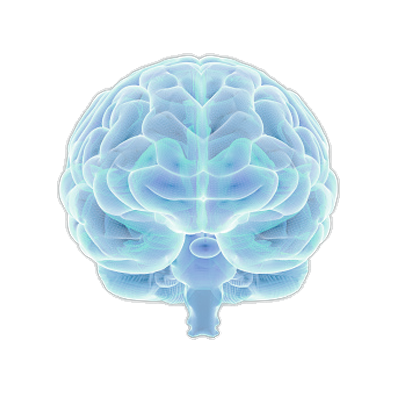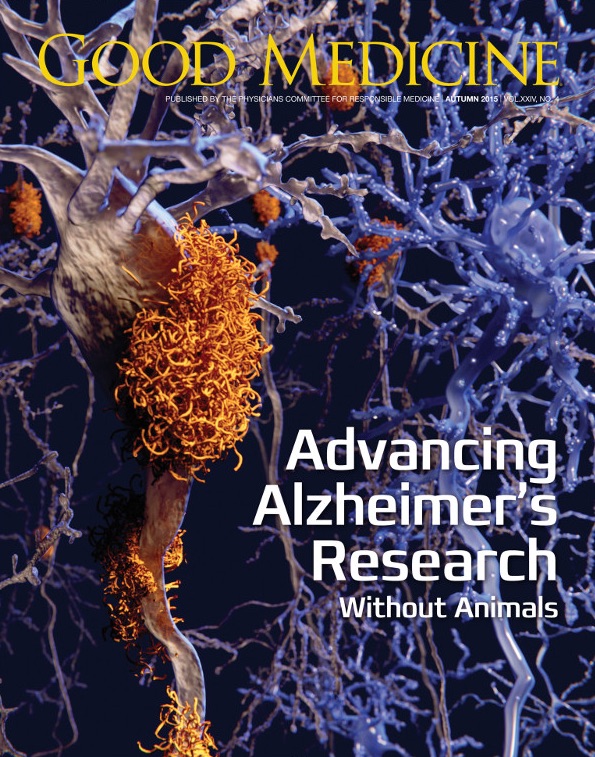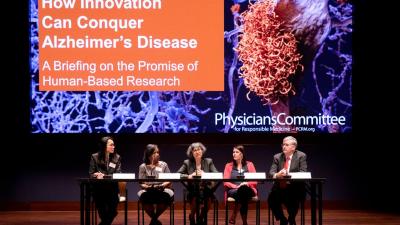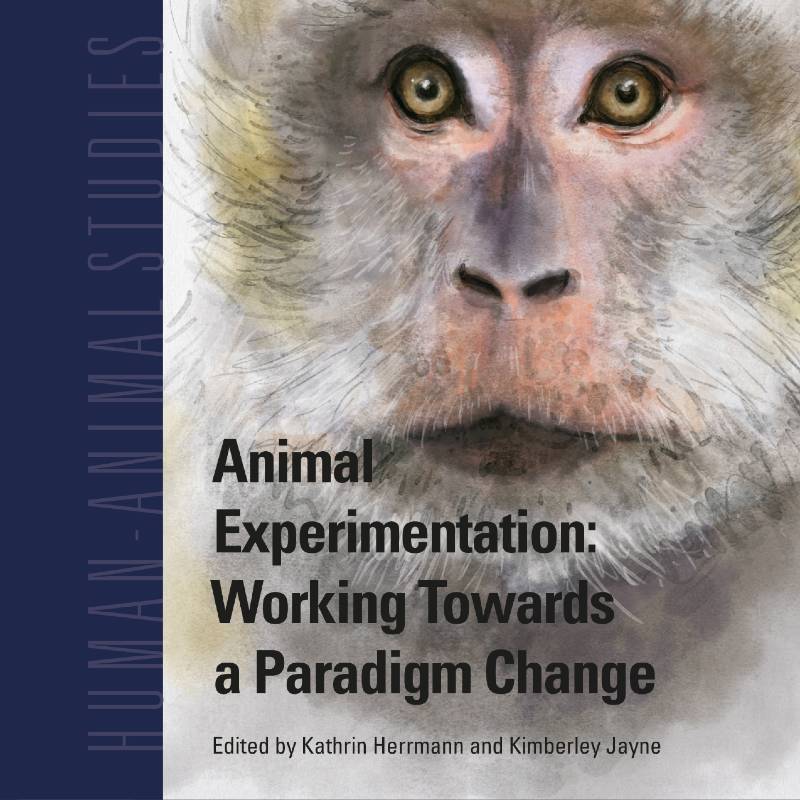Alzheimer’s Disease Research Without Animals
A Shift Toward Human-Relevant Alzheimer’s Research
A staggering 99.6 percent of Alzheimer’s disease drugs that succeed in animal experiments fail in humans. A transition to human-relevant research methods may help lead to the treatment and prevention of Alzheimer’s.
Alzheimer's disease and related dementias have a devastating impact on individuals and society. Decades of basic research, drug development, and clinical trials based largely on animal modeling have repeatedly failed to translate into effective interventions. There are still no treatments that can prevent the development of the disease or even substantially slow the rate of cognitive decline.
Physicians Committee scientists are advocating for the National Institutes of Health and other federal agencies, as well as scientists involved in Alzheimer’s research, to expand and integrate human-based methods such as stem cell technologies, lifestyle interventions, and human tissue studies, to help produce a meaningful treatment or cure.
These human-relevant methods could transform Alzheimer's research:
Alzheimer’s-in-a-Dish
Human brain cells are grown in a 3D gel and then induced to develop plaques and tangles. Scientists can study how the disease progresses and test new therapies.
Brain-on-a-Chip
Brain cells are embedded on a small chip, allowing researchers to quickly test the safety of new treatments.
Neuroimaging
Researchers can monitor patients’ brain health—the severity of plaques and tangles—by taking images before and after a drug or nutrition intervention.
Patient-Derived Samples
Patient-derived brain tissues, blood, and cerebrospinal fluid samples are essential to discovering early diagnostic biomarkers of the disease.
Clinical Trials
Researchers use epidemiological studies to determine how and why the disease develops in certain groups of people. Clinical studies help model disease progression and test new treatment options within groups of people.
Find Out About a 3D Alzheimer’s Disease Model
This model halted inflammation associated with Alzheimer's.
In most cases, scientists ‘engineer’ one or several genetic risk factors in animals and then ‘fix’ the artificially created disorder. However, these ‘fixes’ have not translated to functional improvements in humans with Alzheimer’s.
Ann Lam, PhD, Medical Research Program Director, Physicians Committee















